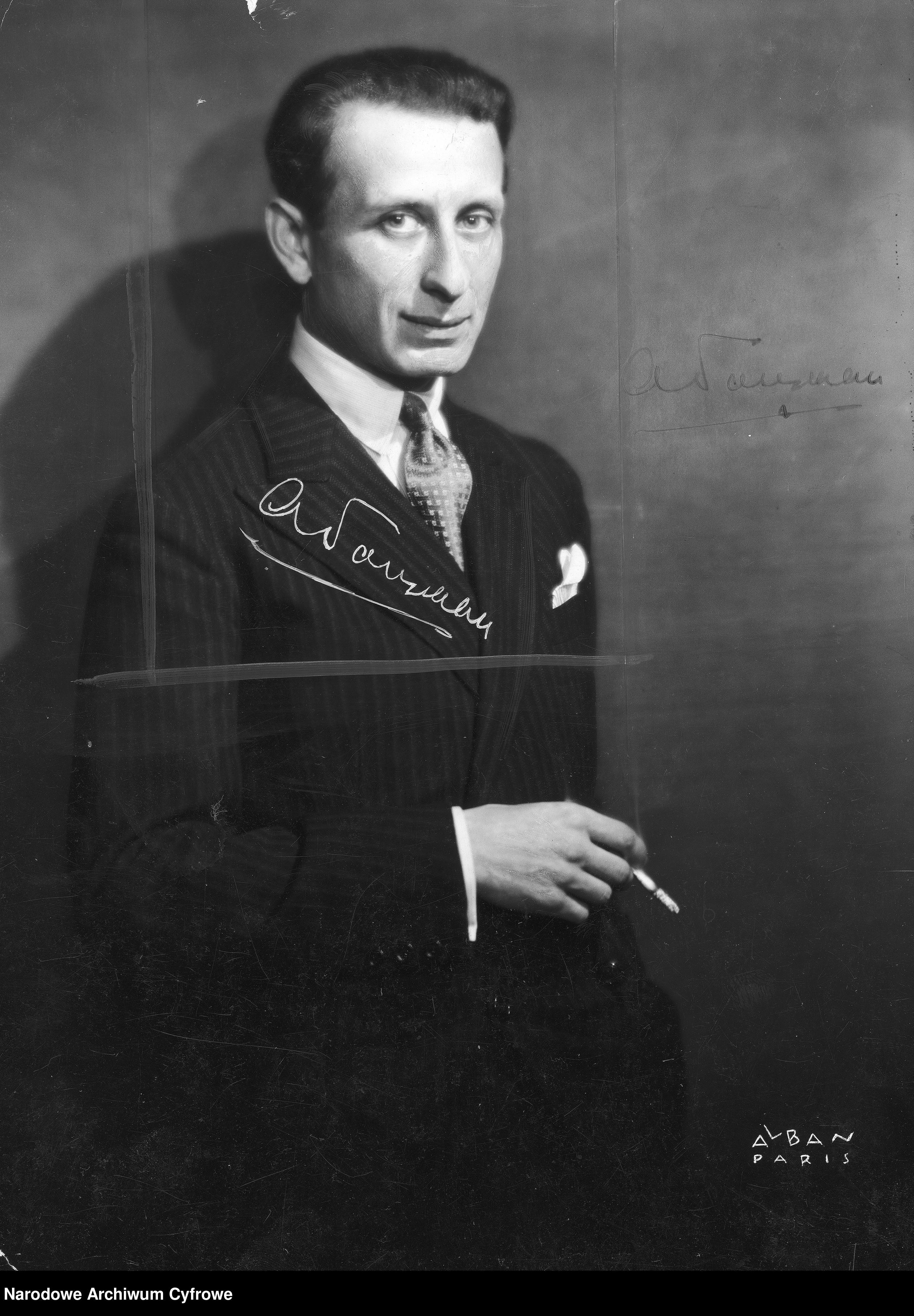|
Tansman
Alexander Tansman ( pl, Aleksander Tansman, link=no, French: Alexandre Tansman; 12 June 1897 – 15 November 1986) was a Polish composer, pianist and conductor who became a naturalized French citizen in 1938. One of the earliest representatives of neoclassicism, associated with École de Paris, Tansman was a globally recognized and celebrated composer. Early life and heritage Tansman was born and raised in Łódź, Congress Poland. His parents were both of Lithuanian Jewish ancestry. His father Moshe Tantzman (1868–1908) died when Alexander was 10 and his mother Hannah (''née'' Gourvitch, 1872-1935) reared him and his older sister Teresa alone. Tansman later wrote: father's family came from Pinsk and I knew of a famous rabbi related to him. My father died very young, and there were certainly two, or more branches of the family, as ours was quite wealthy: we had in Lodz several domestics, two governesses (French and German) living with us etc. My father had a sister who set ... [...More Info...] [...Related Items...] OR: [Wikipedia] [Google] [Baidu] |
Łódź
Łódź, also rendered in English as Lodz, is a city in central Poland and a former industrial centre. It is the capital of Łódź Voivodeship, and is located approximately south-west of Warsaw. The city's coat of arms is an example of canting arms, canting, as it depicts a boat ( in Polish language, Polish), which alludes to the city's name. As of 2022, Łódź has a population of 670,642 making it the country's List of cities and towns in Poland, fourth largest city. Łódź was once a small settlement that first appeared in 14th-century records. It was granted city rights, town rights in 1423 by Polish King Władysław II Jagiełło and it remained a private town of the Kuyavian bishops and clergy until the late 18th century. In the Second Partition of Poland in 1793, Łódź was annexed to Kingdom of Prussia, Prussia before becoming part of the Napoleonic Duchy of Warsaw; the city joined Congress Poland, a Russian Empire, Russian client state, at the 1815 Congress of Vien ... [...More Info...] [...Related Items...] OR: [Wikipedia] [Google] [Baidu] |
Neoclassicism (music)
Neoclassicism in music was a twentieth-century trend, particularly current in the interwar period, in which composers sought to return to aesthetic precepts associated with the broadly defined concept of "classicism", namely order, balance, clarity, economy, and emotional restraint. As such, neoclassicism was a reaction against the unrestrained emotionalism and perceived formlessness of late Romanticism, as well as a "call to order" after the experimental ferment of the first two decades of the twentieth century. The neoclassical impulse found its expression in such features as the use of pared-down performing forces, an emphasis on rhythm and on contrapuntal texture, an updated or expanded tonal harmony, and a concentration on absolute music as opposed to Romantic program music. In form and thematic technique, neoclassical music often drew inspiration from music of the 18th century, though the inspiring canon belonged as frequently to the Baroque and even earlier periods as t ... [...More Info...] [...Related Items...] OR: [Wikipedia] [Google] [Baidu] |
Maurice Ravel
Joseph Maurice Ravel (7 March 1875 – 28 December 1937) was a French composer, pianist and conductor. He is often associated with Impressionism along with his elder contemporary Claude Debussy, although both composers rejected the term. In the 1920s and 1930s Ravel was internationally regarded as France's greatest living composer. Born to a music-loving family, Ravel attended France's premier music college, the Paris Conservatoire; he was not well regarded by its conservative establishment, whose biased treatment of him caused a scandal. After leaving the conservatoire, Ravel found his own way as a composer, developing a style of great clarity and incorporating elements of modernism, baroque, neoclassicism and, in his later works, jazz. He liked to experiment with musical form, as in his best-known work, ''Boléro'' (1928), in which repetition takes the place of development. Renowned for his abilities in orchestration, Ravel made some orchestral arrangements of other compose ... [...More Info...] [...Related Items...] OR: [Wikipedia] [Google] [Baidu] |
Aleksander Tansman Alban Paris 1932
Alexander is a male given name. The most prominent bearer of the name is Alexander the Great, the king of the Ancient Greek kingdom of Macedonia who created one of the largest empires in ancient history. Variants listed here are Aleksandar, Aleksander and Aleksandr. Related names and diminutives include Iskandar, Alec, Alek, Alex, Alexandre, Aleks, Aleksa and Sander; feminine forms include Alexandra, Alexandria, and Sasha. Etymology The name ''Alexander'' originates from the (; 'defending men' or 'protector of men'). It is a compound of the verb (; 'to ward off, avert, defend') and the noun (, genitive: , ; meaning 'man'). It is an example of the widespread motif of Greek names expressing "battle-prowess", in this case the ability to withstand or push back an enemy battle line. The earliest attested form of the name, is the Mycenaean Greek feminine anthroponym , , (/Alexandra/), written in the Linear B syllabic script. Alaksandu, alternatively called ''Alakasandu'' or ' ... [...More Info...] [...Related Items...] OR: [Wikipedia] [Google] [Baidu] |


